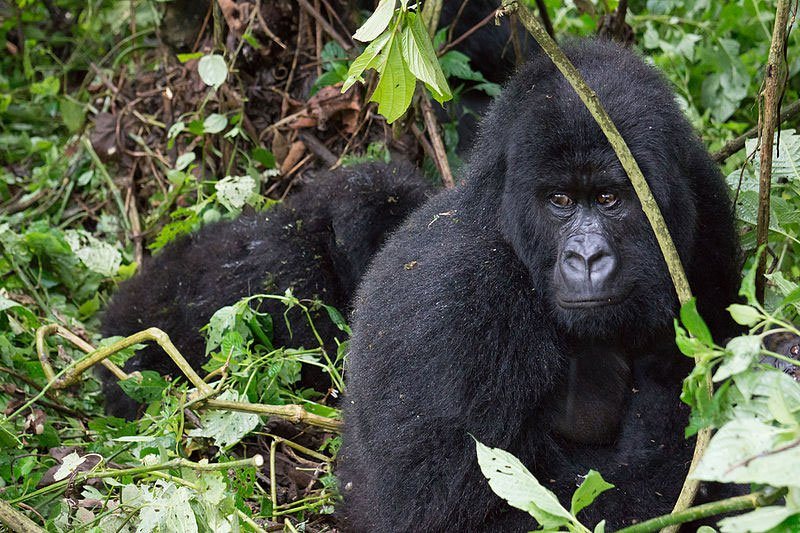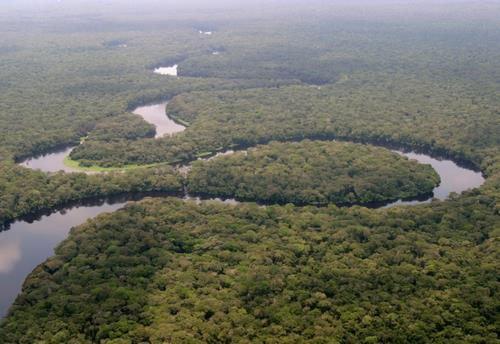In the heart of Congo, two sites with incredible biodiversity are on hold. Although they are on UNESCO’s World Heritage List and are home to many rare species, they will soon be open to oil drilling. A news that already sounds like a disaster even if the country is aware of their environmental importance.
 VIRUNGA AND SALONGA, TWO WORLD-RENOWNED PARKS
VIRUNGA AND SALONGA, TWO WORLD-RENOWNED PARKS
Among the many sites in the Democratic Republic of Congo, Virunga National Park and Salonga National Park (the largest national park in Africa and the second largest rainforest reserve in the world) are among the  largest in the world.
largest in the world.
Home to a great diversity of landscapes such as forests, savannas, mountains, active volcanoes and lakes, these lands are also home to rare animal species. Okapi, Congo peacock, mountain gorillas, bonobos, African crocodile, the two parks are a real theatre of biodiversity.
A GOVERNMENT DECISION
Despite the major role of these two national parks, the government of the Democratic Republic of Congo has confirmed that in parts of these sites, oil exploration and drilling will soon be allowed. If the new revolt is among the defenders of the environment, this desire to exploit natural resources is not new.
In 2014, British oil and gas company SOCO International conducted seismic tests in Virunga. Following fierce opposition with militants, the oil companies gave up exploiting the two zones. Despite these incidents, the Democratic Republic of the Congo maintains that it still has the right to exploit its country’s oil resources.
CONFLICT-PRONE LAND
While UNESCO has recognized the beauty and biodiversity of both parks, what they contain is coveted. Between oil companies, governments, militias, poachers and environmentalists, conflicts have multiplied in the region in recent years.
The scale is such that Virunga National Park has decided to ban all visitors and tourists to the area until at least 2019. Despite these conflicts, the Democratic Republic of the Congo does not intend to reverse its decision, but is aware of the role of the two parks in terms of biodiversity.